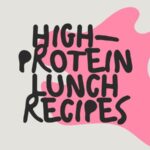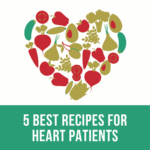In an era of fast-paced lifestyles and convenience foods, it’s no secret that sugar and salt have become staples in our daily diets. From the tempting sweetness of sugary treats to the satisfying crunch of salty snacks, these ingredients have woven their way into our lives. However, there’s a darker side to this love affair, and it’s time we shed light on the hidden dangers of excessive sugar and salt consumption and, more importantly, how to reduce their impact on our health.
Understanding the Sweet Culprit: Sugar
The Sugar Epidemic
Sugar is one of the most consumed ingredients in the world, but its excessive intake has created an alarming health crisis. From the sodas we guzzle to the cereals we spoon into our breakfast bowls, added sugars are ubiquitous. Excess sugar consumption has been linked to a myriad of health issues, including obesity, type 2 diabetes, and heart disease.
Unmasking Hidden Sugars
One of the biggest challenges in reducing sugar intake is identifying hidden sources of sugar. It’s not just the granulated sugar in your coffee; it’s often lurking under names like high fructose corn syrup, sucrose, and agave nectar. By learning to read labels, you can take control of your sugar intake.
How to Reduce Sugar Intake
- Gradual Reduction: Rather than going cold turkey, gradually reduce your sugar intake. This makes it more sustainable and less daunting.
- Choose Natural Sweeteners: Opt for natural sweeteners like honey or maple syrup, which are healthier alternatives to processed sugars.
- Limit Sugary Snacks: Minimize sugary snacks and replace them with healthier options, such as fresh fruit or nuts.
- Cook at Home: Preparing meals at home gives you better control over the ingredients, reducing hidden sugars.
Also check: Family-Friendly Meal Planning
The Sneaky Saboteur: Salt
The Salt Paradox
Salt is essential for our bodies, but like sugar, too much of it can lead to health problems. Excessive salt intake is strongly associated with high blood pressure, which is a significant risk factor for heart disease and stroke.
Sources of Hidden Salt
It’s not just the salt shaker on your dining table that’s to blame. Processed and restaurant foods are often packed with hidden salts. These include monosodium glutamate (MSG) and sodium bicarbonate.
How to Reduce Salt Intake
- Read Labels: Pay close attention to sodium levels on food labels, and choose low-sodium options.
- Cook from Scratch: By preparing your meals at home, you can control the amount of salt used.
- Use Herbs and Spices: Experiment with herbs and spices to flavor your food without relying on salt.
- Stay Hydrated: Drinking plenty of water can help flush excess sodium from your system.
Also check: Intermittent Fasting – Is It a Sustainable Diet Trend?
The Power of Informed Choices
When it comes to reducing sugar and salt in your diet, knowledge is your greatest ally. Awareness of what you’re consuming can be the first step toward healthier living. Here are a few more strategies to help you make informed choices:
Mindful Eating
Practicing mindful eating involves being fully present during your meals. It means savoring each bite, paying attention to your body’s hunger cues, and understanding the difference between real hunger and emotional cravings. By doing so, you can avoid overindulging in sugary and salty foods.
Healthy Alternatives
In the quest to reduce sugar and salt, it’s crucial to identify healthier alternatives that don’t compromise on taste. For example:
- Snack Smart: Instead of reaching for a bag of potato chips, consider air-popped popcorn, vegetable sticks with hummus, or a handful of unsalted nuts.
- Sugar Substitutes: Stevia, erythritol, and monk fruit sweeteners are low-calorie sugar substitutes that can satisfy your sweet tooth without the health risks associated with excess sugar.
- Homemade Meals: Preparing meals at home not only allows you to control ingredients but also enables you to experiment with herbs and spices for flavor.
Meal Planning
Creating a weekly meal plan can be a game-changer in reducing sugar and salt intake. Planning your meals in advance helps you make healthier food choices and reduces the temptation to order takeout or indulge in high-sugar, high-salt convenience foods.
Education and Support
If you find it challenging to make these dietary changes on your own, consider seeking out educational resources and support networks. Many reputable websites, books, and communities are dedicated to providing guidance and encouragement to those looking to adopt a healthier lifestyle.
A Healthier Future
Reducing sugar and salt in your diet is not just a fad; it’s a commitment to better health and well-being. By understanding the hidden dangers and taking practical steps to reduce your intake, you can make a profound impact on your life. It’s about making informed choices, reading labels, and savoring the natural flavors of fresh, unprocessed foods.
So, take charge of your health today by curbing those hidden culprits in your diet. Your body will thank you in the long run.






Leave a Reply